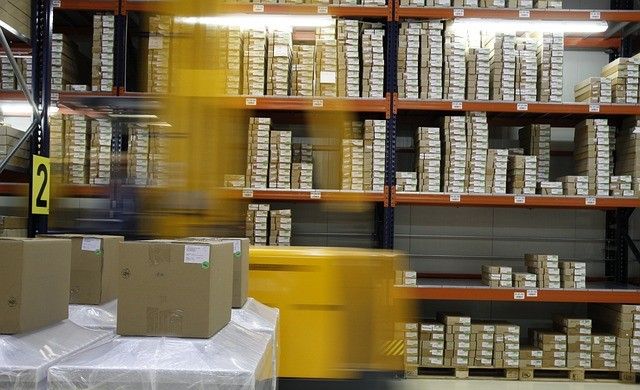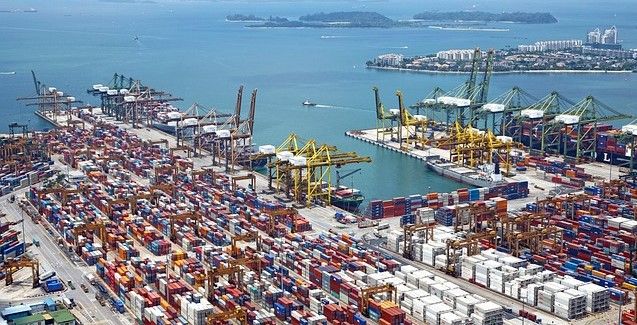Due to its recent online accessibility, industry is buzzing with the potential of AI and the idea that an online assistant could make everyone’s life easier. A digital butler to do all our computer work for us.
Certainly, a lot of the help is real. Programs like ChatGPT, which are actually large language models (LLMs), enable anyone to use simple, everyday language to get a computer to do what it does best – handle data.
While some may be sceptical of yet another overhyped technology (following on the heels of blockchain and Industry 4.0 - which have yet to be truly revolutionary), there is a clear case for AI changing the way businesses operate. In fact, change has already happened.

“The most relevant use cases today that you see of AI are in customer support and customer service, with so much time spent emailing and answering phone calls,” Michael Wax, CEO of the logistics operator Forto.
But more than just chat bots helping customers with specific queries, more specialist roles can also be aided with AI. For example, video editors can increase output with AI editing systems, online copy and marketing text can be produced much faster with AI Writers, and programs such as Canva and Gencraft can create images from written descriptions.
But how can AI help procure raw materials or organize complex supply chains?
Firstly, it is important to acknowledge that industry specific LLMs will be far more valuable than general purpose ones. Shipping managers, for example, will gain little to help their workflow from a generic system such as ChatGPT.
“With ChatGPT, you’re querying the internet, but it won’t answer business-related queries,” explains Matt Motsick, CEO of Rippey.ai. “You can’t get a shipping quote from ChatGPT. ChatGPT is great as an internal tool and as a research tool. But for a customer tool, ChatGPT alone won’t work.”

Secondly, the best advantage of LLMs will be made by software developers and programmers who are more adept at prompting such systems than non-experts. Only by blending the knowledge of these IT specialists with procurement teams and supply chain managers will economic benefits be made.
As Eric Johnson, a senior technology analyst makes clear, “… industry is far from a reality where a logistics manager merely prompts a system to autonomously execute a shipment of goods across continents, as a consumer might prompt a smart home device to adjust the temperature in his or her house.” Instead, there is a technique to telling AI what you want.
“The effectiveness of prompts — the art of asking an LLM the right questions to get the desired answers — is at the heart of whether generative AI can reach the potential many believe it has,” says Johnson.

With the correct AI systems, the administration of raw material deliveries, freight rate management, regulatory concerns, scheduling, and the myriad of issues that involve industrial logistics and procurement can now be streamlined. The AI still requires a trained operator with knowledge of raw material purchasing and shipping, but much of the heavy lifting and data comparison can be performed online.
“The idea is to have a bot get you a shipping quote, track a shipment, book a shipment, responding back in real time,” explains Motsick, whose business specializes in building logistics-specific AI.
While this may sound futuristic for manufacturers or raw material suppliers who have yet to take the leap towards AI, the fact is LLMs are already saving businesses time and money.
“It's hard to pin down, but it's probably 10 to 30% more velocity per person,” observed one anonymous executive in a recent interview with the Journal of Commerce. “It's like getting around 20 engineers for $1,000 per year per person. That kind of economics simply has to result in massive changes.”
The executive in question holds a position at a global transportation and procurement management software provider. Adding that, “I don't think there’s been a genuine paradigm shift like this in my lifetime since cloud computing or maybe the arrival of smartphones.”

Another chatbot-like interface was developed earlier this year by Expedock, a software company that caters to logistics teams and forwarders. The result was a system that could review a company's supply chain data and respond to inquiries in a way that is clear to people.
“The idea was for users not to have to slog through Transport Management Systems to get to the shipment data they need,” said Expedock CEO King Alandy Dy. “Personally, we believe that this will be one of the ways that businesses will interact with their supply chain data in the future.”
The beauty of AI is that it can wade through so much data to provide an answer to a prompt. That’s an extraordinary boost for both raw material users and suppliers who have to negotiate and manage long and complex supply chains. The paperwork, the cost assessments, the timings, the regulations, even carbon emission evaluations - all need to be factored in. Such a large data set of comparisons can be done much more smoothly with AI.
“There’s tons to be written about the wave of these new AI models that can drastically improve existing supply chain processes,” notes Dy. “And the innovation is just beginning.”
If you enjoyed this article, you might also like to read Supply Chains Facing Next Big Stress with EU Sustainability Law or Ethical and Sustainable Raw Materials: From Supply or Purchasing?
Photo credit: Pxfuel, Cegoh on Pixabay, Pxfuel, Flutie8211& Delphinmedia